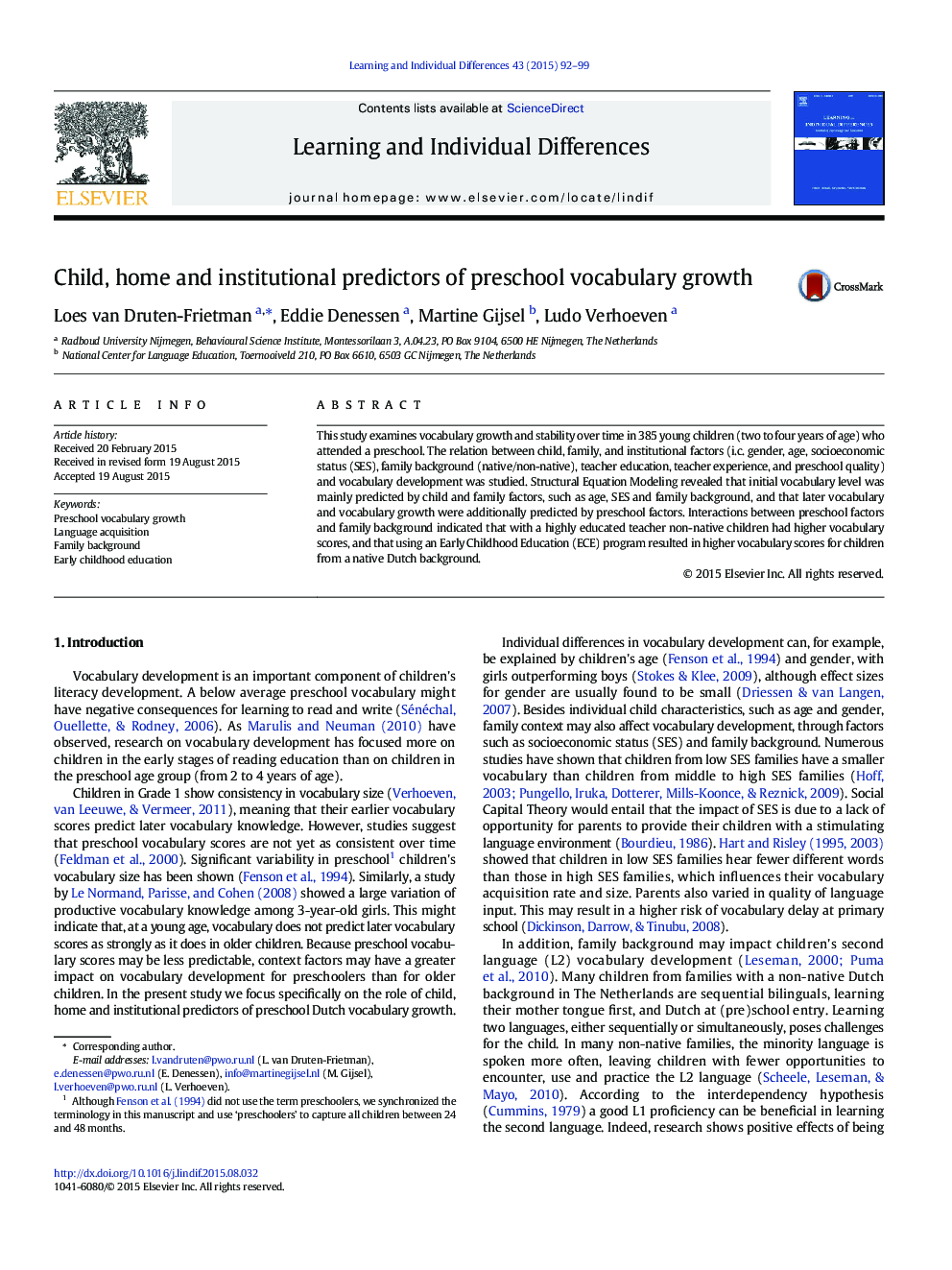| کد مقاله | کد نشریه | سال انتشار | مقاله انگلیسی | نسخه تمام متن |
|---|---|---|---|---|
| 364654 | 621080 | 2015 | 8 صفحه PDF | دانلود رایگان |
• Preschool vocabulary is studied in relation to child, family and preschool factors.
• Effects of family context variables are noticeable at an early age.
• Additional positive effects of preschool factors on vocabulary development.
• Highly educated teachers are beneficial for non-native children's vocabulary.
• Using an ECE program resulted in higher vocabulary scores for native Dutch children.
This study examines vocabulary growth and stability over time in 385 young children (two to four years of age) who attended a preschool. The relation between child, family, and institutional factors (i.c. gender, age, socioeconomic status (SES), family background (native/non-native), teacher education, teacher experience, and preschool quality) and vocabulary development was studied. Structural Equation Modeling revealed that initial vocabulary level was mainly predicted by child and family factors, such as age, SES and family background, and that later vocabulary and vocabulary growth were additionally predicted by preschool factors. Interactions between preschool factors and family background indicated that with a highly educated teacher non-native children had higher vocabulary scores, and that using an Early Childhood Education (ECE) program resulted in higher vocabulary scores for children from a native Dutch background.
Journal: Learning and Individual Differences - Volume 43, October 2015, Pages 92–99
